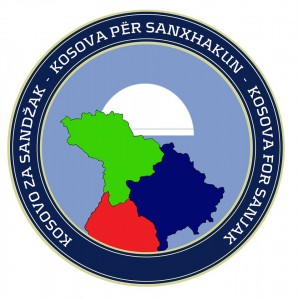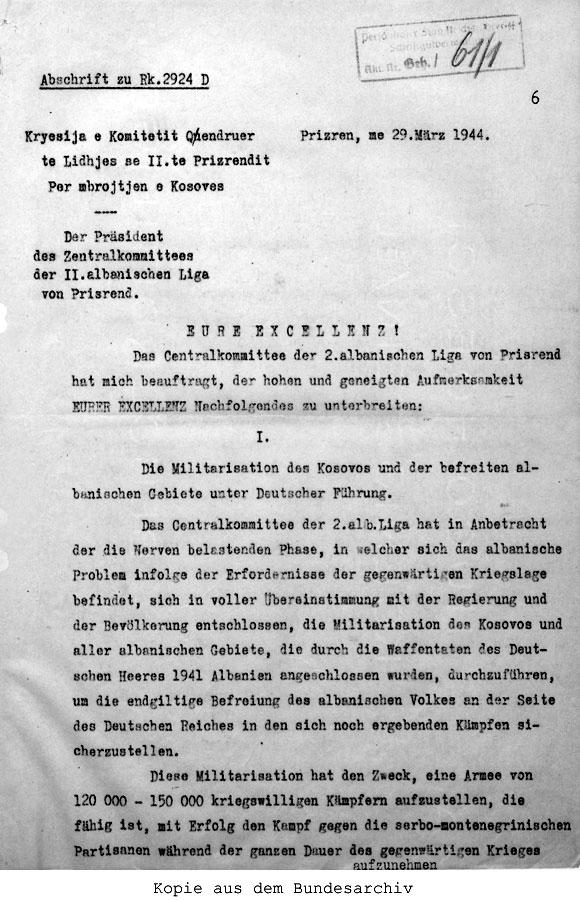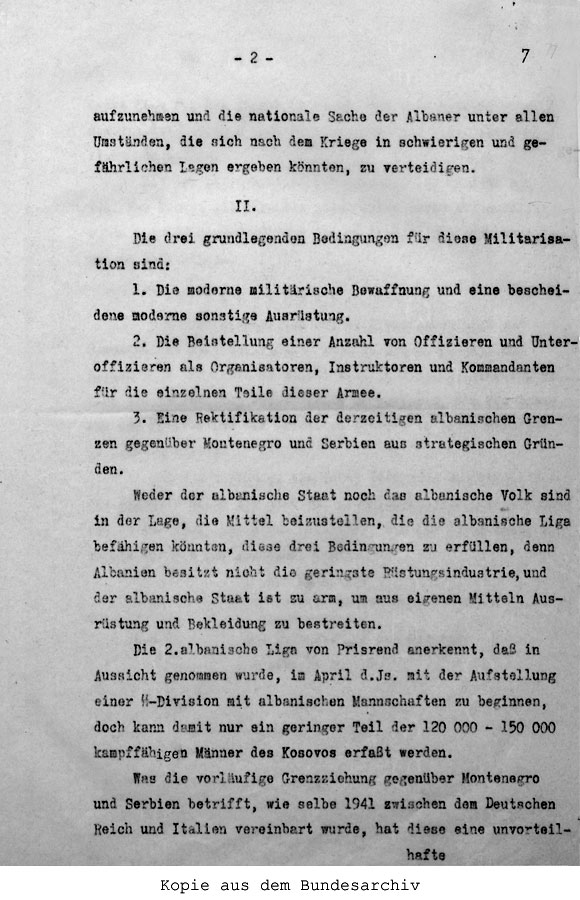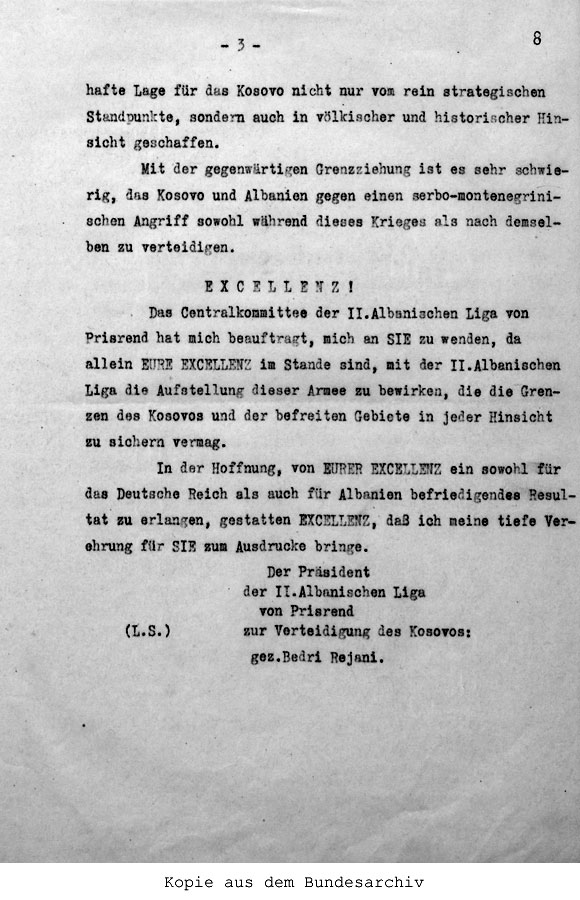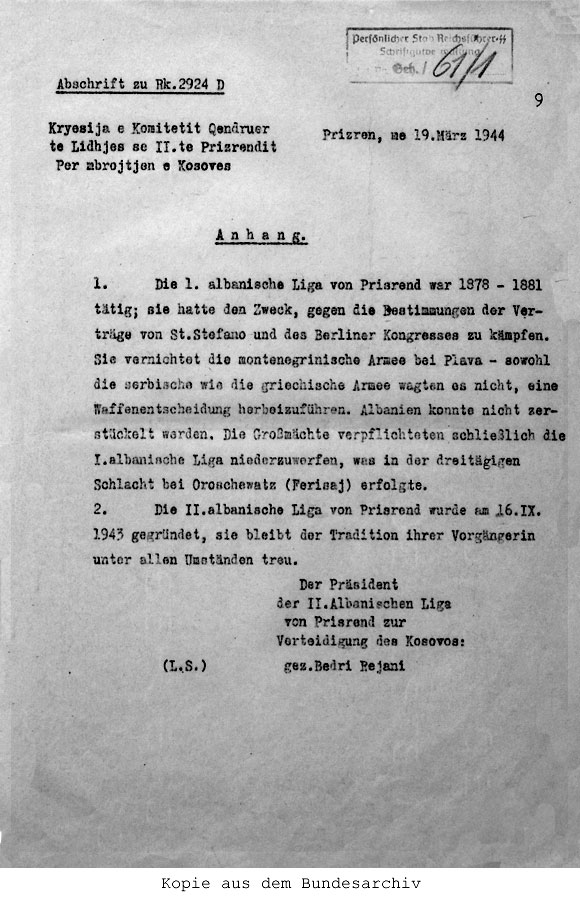The Kosovo Albanian political figure Bedri bey Pejani (1885-1946) was born in Peja. He attended Robert College in Constantinople and studied history at the University of Constantinople. Pejani took part in the declaration of Albanian independence in Vlora in November 1912, being then elected to the senate. He was one of the instigators of the Kosovo Defence Committee (1918-1924) and represented Kosovo at the Conference of Versailles in 1919. From 1921 to 1923, he was a member of the Albanian parliament and head of the People’s Party. He fled Albania in late 1924 when Ahmet Zogu took power, and joined the left-wing forces of the National Revolutionary Committee, Konare (“Komiteti Nacional Revolucionar”) abroad until 1927. Pejani later founded the Committee for the Liberation of Kosovo (“Komiteti i Çlirimit të Kosovës, KÇK”) and was sentenced to death in absentia by the Zogu government. In 1941-1943, he was interned by the Italians but was released after Italy’s capitulation, and returned to the Balkans. Assisted by the German emissary Franz von Schweiger, Bedri Pejani and Xhafer Deva set up the Second League of Prizren aimed at protecting Greater Albania, which was now in jeopardy. In Kosovo in 1944, Pejani and the Second League of Prizren, which he headed from January to June of that year, were responsible in good part for the ethnic cleansing of some 40,000 Serbs from Kosovo by April of that year. Hermann Neubacher, German special representative for southeastern Europe, referred to him as mad or crazed, and used his own influence, unsuccessfully, to have Pejani arrested by the regency government in Tirana. Pejani was captured by the communists in Albania in 1945, handed over to the Yugoslav authorities, and sentenced to death. He was, however, released, but died soon thereafter at Prizren hospital in July 1946. In this document, Bedri Pejani appeals to Reichsführer SS, Heinrich Himmler, for support to set up an Albanian army to fight the advancing communist partisans. Nothing came of the project.
Copy to Rk.2924 D
Prizren, 29 March 1944The President of the Central Committee
of the Second League of Prizren
for the Defence of Kosovo
Your Excellency!The Central Committee of the Second Albanian League of Prizren has asked me to submit the following for Your Excellency’s kind attention
I
Mobilisation of Kosovo and the liberated Albanian regions under German leadership.
In view of the nerve-racking phase in which the Albanian problem finds itself due to the current military situation, the Central Committee of the Second Albanian League of Prizren, in agreement with the government and the population, has decided to call for the general mobilisation of Kosovo and all Albanian regions that were annexed to Albania as a result of the armed intervention of the German Army in 1941, in order to ensure the definitive liberation of the Albanian people, side by side with the German Reich, in the current fighting.
The aim of this mobilisation is to set up an army of 120,000-150,000 volunteers capable of opposing and successfully defeating the Serbo-Montenegrin partisans for as long as the current war lasts and, under all circumstances, of defending Albanian national interests after the war in any difficult or perilous situations that might arise.
II
The three basic conditions for such a mobilisation are:
1. Modern military weaponry and a modest amount of other modern equipment.
2. The provision of a number of commissioned and non-commissioned officers to organise, instruct and command the various components of this army.
3. A rectification of the current Albanian borders with Montenegro and Serbia for strategic reasons.
Neither the Albanian State nor the Albanian people are in a position to provide the support needed to enable the Albanian League to fulfil these three conditions because Albania has no arms industry at all and the Albanian State is too poor to finance the equipment and uniforms of its own accord.
The Second Albanian League of Prizren is aware that plans were made to begin setting up an SS Division with Albanian fighters in April of this year, but these would only make up a small proportion of the 120,000-150,000 able men needed in Kosovo.
With regard to the provisional border with Montenegro and Serbia, as agreed in 1941 between the German Reich and Italy, it is disadvantageous for Kosovo not only from a purely strategic perspective but also for demographic and historical reasons.
With the border as it is, it would be very difficult for Kosovo and Albania to defend themselves from a Serbo-Montenegrin attack either during this war or thereafter.
Excellency!
The Central Committee of the Second Albanian League of Prizren has asked me to appeal to you since only Your Excellency is in a position to raise an army, with the Second League of Prizren, that could provide comprehensive defence for the borders of Kosovo and the liberated regions.
In the hope of attaining a satisfactory solution from Your Excellency both for the German Reich and for Albania, I would ask Your Excellency to accept the expression of my profound respect.
The President
of the Second Albanian League of Prizren
for the Defence of Kosovo:(L.S.) signed Bedri Pejani
Copy to Rk.2924 D
Prizren, 19 March 1944The President of the Central Committee
of the Second League of Prizren
for the Defence of Kosovo
Attachment
1. The First Albanian League of Prizren was active in 1878-1881; its objective was to oppose the provisions of the treaties of San Stefano and Congress of Berlin. It defeated the Montenegrin army near Plava such that neither the Serbian nor the Greek army dared to intervene militarily and they were unable to divide Albanian up. The Great Powers then decided to put down the First Albanian League, which they did at the three-day battle of Oroshevats (Ferizaj).
2. The Second Albanian League of Prizren was founded on 16 September 1943 and remains faithful under all circumstances to the traditions of its predecessor.
The President
of the Second Albanian League of Prizren
for the Defence of Kosovo:(L.S.) signed Bedri Pejani
Acknowledgment of receipt: Personal Staff of the Reichsführer SS. Document administration, File No. Geh./61/1.
[Document from the Bundesarchiv of the Federal Republic of Germany, NS19/2071. Translated from the German by Robert Elsie.]
